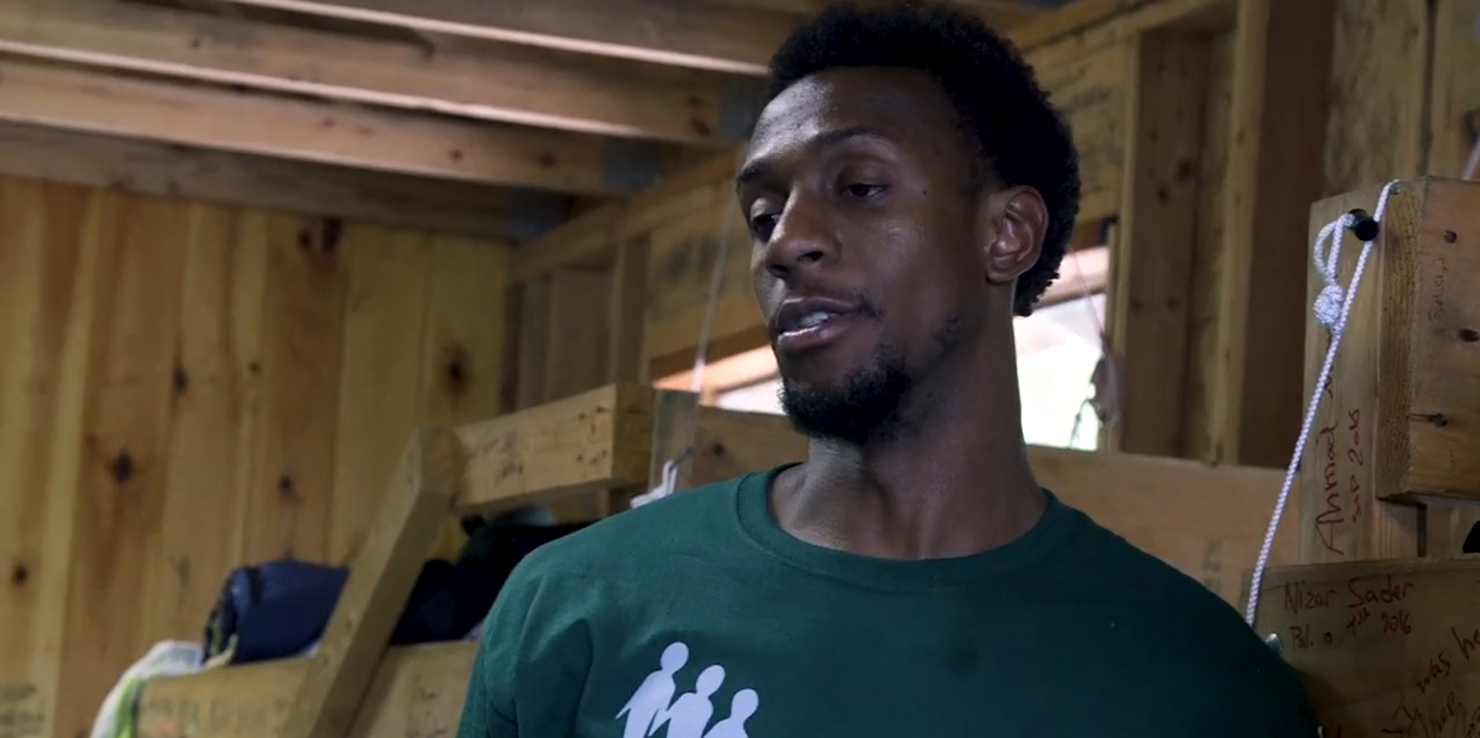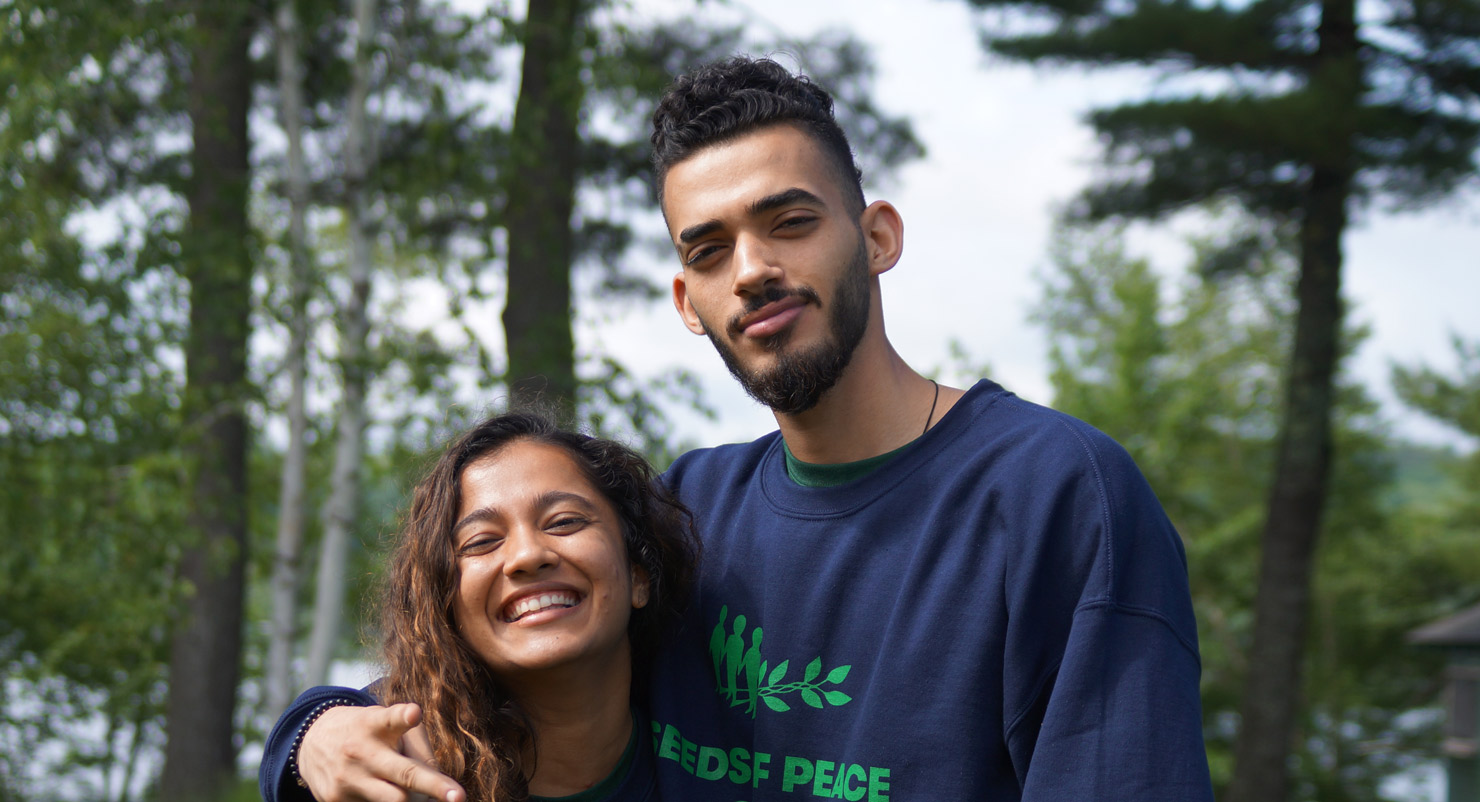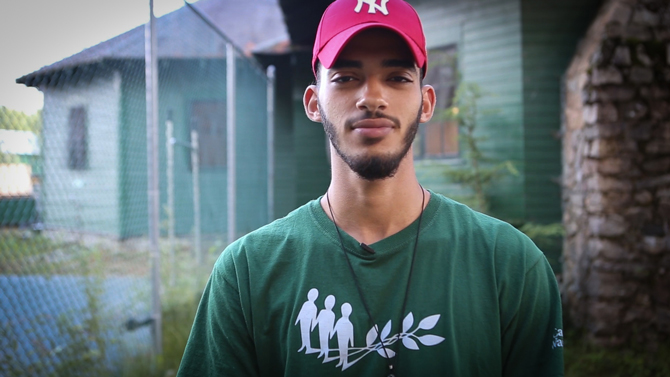NICOSIA | Seeds of Peace launched its New Visions For Peace Fellowship gathering in Cyprus, convening its first class of 16 fellows for a week to connect and share their projects for a more humane, just and peaceful world.
The 2015 Fellowship was awarded to educators and artists in the Middle East, South Asia, and the United States who are putting forth fresh and practical ideas that encourage creativity, communication, critical thinking, cross-cultural understanding, and a more just, more humane future.
The June 27 to July 3 event was held in Nicosia, the last divided European capital city. Seeds of Peace partnered with three Cypriot NGOs to bring together people from both sides of the divide.
Part of the experience included a visit to the neighborhood of Arabhamet, located next to Nicosia’s ‘Green Line’ buffer zone between the Greek majority and Turkish majority sides of the island. After passing through the many checkpoints, the group’s task was to engage with the community, including its people and its physical surroundings.
“This was an exercise in awareness, which is so much a part of what Seeds of Peace does,” said Daniel Noah Moses, director of Seeds of Peace Educator Programs. “It was experiential learning; it was exploration. Alongside the rest of what we we did together, it was creative questioning of and resistance to the status quo.”
Fellows had a rare and meaningful opportunity to learn together about what’s happening on the ground in Cyprus and to relate the conflict on the island to their own experiences and situations back home. This also allowed them to get out of their comfort zones, to express themselves, to engage with one another, and to reach new levels of mutual trust and understanding. Meanwhile, over the course of the workshop, Fellows presented their own projects, inspired and supported one another, and left the island ready to get to work
The New Visions For Peace Fellowship is an investment by Seeds of Peace in educators and artists who have the greatest potential to create positive change.
NEW VISIONS FOR PEACE FELLOWS (CYPRUS) PHOTOS





 In addition to the excitement surrounding camp, we also have two other new additions to our staff here at Seeds of Peace. We welcome Tammy Sun as our Executive Vice President, and Richard Berman as Chairman of the Board. As the three of us enter the Seeds of Peace family we are all eager to work together to broaden the scope of Seeds of Peace’s already impressive global impact. One of our primary tasks ahead is to create even more ways to integrate and engage our network of Seeds alumni into the programs and events that take place worldwide.
In addition to the excitement surrounding camp, we also have two other new additions to our staff here at Seeds of Peace. We welcome Tammy Sun as our Executive Vice President, and Richard Berman as Chairman of the Board. As the three of us enter the Seeds of Peace family we are all eager to work together to broaden the scope of Seeds of Peace’s already impressive global impact. One of our primary tasks ahead is to create even more ways to integrate and engage our network of Seeds alumni into the programs and events that take place worldwide. Nicolla Hewitt, the new President of Seeds of Peace, was a network news producer for 18 years working for ABC, CBS and NBC News before joining the Seeds of Peace team. As President of Seeds of Peace she brings a unique insight and understanding to the job, having covered stories of conflict, and stories of peace. In her capacity as a journalist, Nicolla has interviewed numerous world leaders, witnessed history, covered wars, peace treaties, and Presidential Inaugurations. Her coverage has taken her to all parts of the world, with a particular emphasis on the Middle East.
Nicolla Hewitt, the new President of Seeds of Peace, was a network news producer for 18 years working for ABC, CBS and NBC News before joining the Seeds of Peace team. As President of Seeds of Peace she brings a unique insight and understanding to the job, having covered stories of conflict, and stories of peace. In her capacity as a journalist, Nicolla has interviewed numerous world leaders, witnessed history, covered wars, peace treaties, and Presidential Inaugurations. Her coverage has taken her to all parts of the world, with a particular emphasis on the Middle East. While our focus is most often geared towards camp, there are also several follow up programs started by graduate seeds that aim to reach out to their home communities. Recently several of our Egyptian Seeds held a charity day in memory of Omar Sherein, a Seed who was killed in a car accident earlier this year, which raised money for an orphanage in a poor neighborhood of Cairo. In addition to the great efforts being made by former Seeds, the Young Leadership Committee (YLC) has also been making strides coming up with new fundraising ideas.
While our focus is most often geared towards camp, there are also several follow up programs started by graduate seeds that aim to reach out to their home communities. Recently several of our Egyptian Seeds held a charity day in memory of Omar Sherein, a Seed who was killed in a car accident earlier this year, which raised money for an orphanage in a poor neighborhood of Cairo. In addition to the great efforts being made by former Seeds, the Young Leadership Committee (YLC) has also been making strides coming up with new fundraising ideas.


